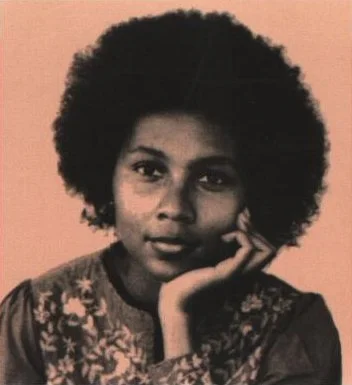Endometriosis Awareness Month: Ending the Stigma
Photo courtesy of @mycoze_
One in ten people with uteruses are affected by endometriosis*, a condition where the tissue normally lining the inside of the uterus grows on the outside. Vivian, a 34 year old endometriosis patient describes the symptoms as, “[...] a bat with spikes going up my butt scraping my belly area and coming out my vagina.” Along with the physical symptoms, the condition also takes a toll emotionally as there is so much shame and stigma surrounding reproductive care, which is why it is so important to talk about it especially at the end of March, or rather, Endometriosis Awareness Month.
Endometriosis is often severely overlooked as an illness because it is invisible, meaning you would never know someone is struggling simply by looking at them. Emma, age 19 explains: “Endometriosis is more than just a ‘period problem.’ Endometriosis may not be visible, but it’s a debilitating illness.” In addition to this, a lack of discussion about periods in general often prevents womxn from seeking care. If we do not talk about what is considered “normal” or “healthy” how are we supposed to know when a doctor needs to be consulted? Vivian told me: “My mother would tell me I didn’t need help and that I was going through something every person with menstruation deals with. She felt really bad once she understood what endometriosis was.”
On average, it takes patients (because not all endometriosis patients are womxn because not all people with uteruses are womxn) approximately six years to receive the diagnosis of endometriosis. Given that the average person starts their period around age twelve, that puts the average age of diagnosis of endometriosis around the start of college. Stephanie, an 18 year old currently searching for a diagnosis, described the exhausting process to me: “It’s really difficult going through the process of getting diagnosed, especially as a freshman in college. I’m barely used to going to the doctors without a parent, but I had to go to the ER by myself one night because my pain was so bad. Luckily, there’s a hospital with an OB-GYN and imaging centers right on campus, so getting to doctors isn’t difficult. It’s really tough finding time to go in the middle of classes and work, and I feel weird missing either and submitting a doctors note since it’s a personal problem and not the kind of thing that you can just talk about with anyone.”
It is imperative we combat these barriers to diagnosis and support, but how can we do that when the medical system is inherently sexist?
There have been many viral stories in recent years of gender-based misdiagnoses, which are even more frequent for people of color. In addition to gender bias, reproductive care is often taboo and looked down by doctors (and society in general). Endometriosis being at the precise intersection of these two adds to its extended diagnosis time and overall misunderstanding.
While I do not have endometriosis, I have a bleeding disorder along with a complex medical history requiring me to be on blood thinners—needless to say this wreaked havoc on my periods and by extent my college experience (you can read more about my personal experience here) —and I can empathize with endometriosis patients’ experiences and by extent the need for a serious shift in conversation surrounding reproductive care, which is a conversation everyone needs to be involved in.
About four years ago, I started a non-profit, Sick Chicks, which is dedicated to uniting and empowering womxn with varying illnesses and differing abilities. One aspect of our programming is encouraging our Sick Chicks Sisters to submit Spotlight stories, or articles sharing their personal experience or perspective, which is how I originally met interviewee Emma who told me: “Endometriosis is controlling, but it also gave me a reason to speak out about reproductive health care importance.” She is an active member of the Sick Chicks Sisterhood in addition to her own individual advocacy through social media and education of medical professionals.
However, you do not have to be a public advocate like Emma to make a difference. Simply discussing periods more in day-to0day life helps. Reproductive care product companies including Lunette and Sustain have started various social media campaigns focusing on normalizing the conversation surrounding periods. And as I mentioned earlier: if we’re not talking about normal periods how can we know what is abnormal? So carry your tampons out of CVS with pride, openly complain about how much cramps and hormonal acne suck, and share the struggles on social media if you’re comfortable—we share all of the other personal, intimate details of our lives, anyway! Additionally, always believing your friends and family members is key to prevent what patients like Vivian experience in having symptoms minimized.
If you are struggling with endometriosis, you are not alone and you are not ovary-reacting (sorry, I had to). You deserve to be seen. Every month is an opportunity to raise awareness and continue stigma smashing conversations surrounding reproductive care—especially endometriosis.
*Not everyone who menstruates and has Endometriosis identifies as a womxn.
About the Author
Shira Strongin is a second year student at the George Washington University majoring in Political Communications. Originally from Southern California, Strongin is an award winning advocate and writer who took her personal experience with rare disease and founded Sick Chicks, a 501(c)3 non-profit dedicated to uniting and empowering women with varying illnesses and abilities.



